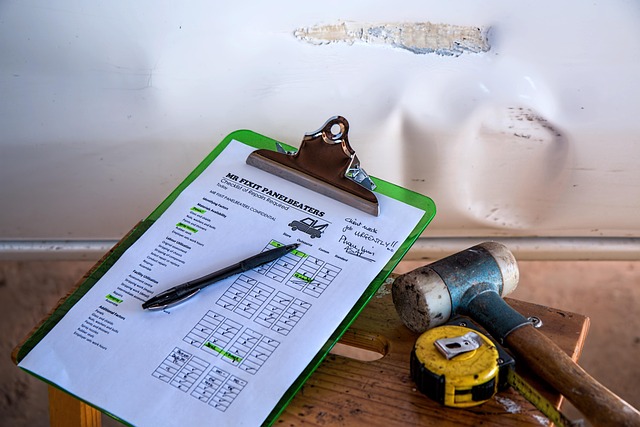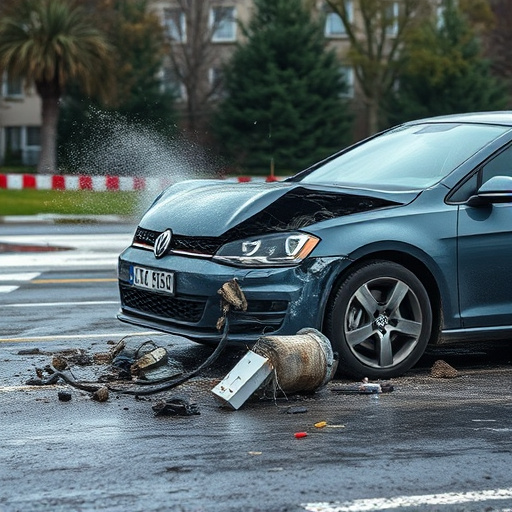Airbag safety certification is a vital process ensuring airbags deploy safely during collisions, crucial for auto manufacturers and repair services to meet industry standards and consumer expectations. Recent accidents highlighting airbag failures have increased scrutiny on vehicle preparation processes, emphasizing the need for transparent, rigorous certification. Proven effective in reducing road fatalities globally, particularly in Japan and the US, this certification not only saves lives but also offers economic benefits by minimizing car body repair costs.
Airbag safety certification is an indispensable pillar in the automotive industry, ensuring passenger protection. This article explores its critical role in enhancing vehicle safety standards. We delve into real-life accidents that underscore the significance of proper airbag testing, and highlight global success stories showcasing lives saved through stringent certification processes. Understanding these examples reinforces the importance of airbag safety certification as a game-changer in road safety.
- The Role of Airbag Safety Certification in Automotive Industry Standards
- Real-Life Accidents Highlighting the Crucial Need for Proper Airbag Testing
- Global Success Stories: How Airbag Safety Certification Saves Lives
The Role of Airbag Safety Certification in Automotive Industry Standards

Airbag safety certification plays a pivotal role in shaping the automotive industry’s standards and ensuring passenger protection. It serves as a crucial benchmark for auto manufacturers, guiding the development and implementation of life-saving features within vehicles. This certification process involves rigorous testing and evaluation to guarantee that airbags deploy safely and effectively during collisions, minimizing risks and maximizing benefits.
Without proper airbag safety certification, auto body services and maintenance facilities might struggle to meet industry regulations. Auto collision centers, for instance, rely on these standards to repair vehicles while adhering to safety protocols. By certifying airbags, manufacturers and service providers can offer peace of mind to drivers, knowing that their vehicles are equipped with reliable safety mechanisms, thus contributing to overall road safety.
Real-Life Accidents Highlighting the Crucial Need for Proper Airbag Testing

In recent years, several real-life accidents have brought the crucial need for proper airbag testing into stark relief. High-profile incidents where airbags failed to deploy or deployed incorrectly have resulted in serious injuries and even fatalities, underscoring the vital importance of airbag safety certification. Without rigorous testing protocols, car manufacturers risk endangering their customers’ lives by deploying faulty airbags during collisions.
These accidents have prompted closer scrutiny of the frame straightening and auto body services processes, as well as car paint repair techniques, all of which can impact airbag functionality. Consumers and regulatory bodies alike are now demanding greater transparency and accountability in how vehicles are prepared and certified for road safety, ensuring that airbags function optimally during emergencies.
Global Success Stories: How Airbag Safety Certification Saves Lives

In recent years, several global success stories have highlighted the profound impact of airbag safety certification on reducing road fatalities and injuries. Countries like Japan and the United States, known for their stringent airbag safety standards, have witnessed significant declines in traffic-related deaths. These nations mandate rigorous testing and certification processes for airbags, ensuring they deploy effectively during collisions, thereby enhancing passenger safety. For instance, in Japan, where airbag technology was first introduced widely, strict certification regulations have contributed to a nearly 50% reduction in fatal accidents involving driver airbags over two decades.
These success stories don’t just stop at saving lives; they also illustrate the economic benefits of airbag safety certification. Properly functioning airbags, as certified through meticulous processes, minimize the need for extensive car body repair and restoration after accidents. This not only reduces costs for both insurers and vehicle owners but also expedites the recovery process, with auto detailing and car body restoration efforts focused on less severe damages. Thus, airbag safety certification isn’t merely a safety measure; it’s an investment that prevents unnecessary financial burdens and keeps roads safer for all.
Airbag safety certification plays an indispensable role in ensuring passenger protection, as demonstrated by real-world examples globally. The necessity of rigorous testing is evident from severe accidents, where proper certification could have mitigated outcomes. By setting industry standards and promoting best practices, airbag safety certification saves lives and enhances overall vehicle safety, making it an essential pillar in the automotive industry’s ongoing pursuit of safety excellence.














